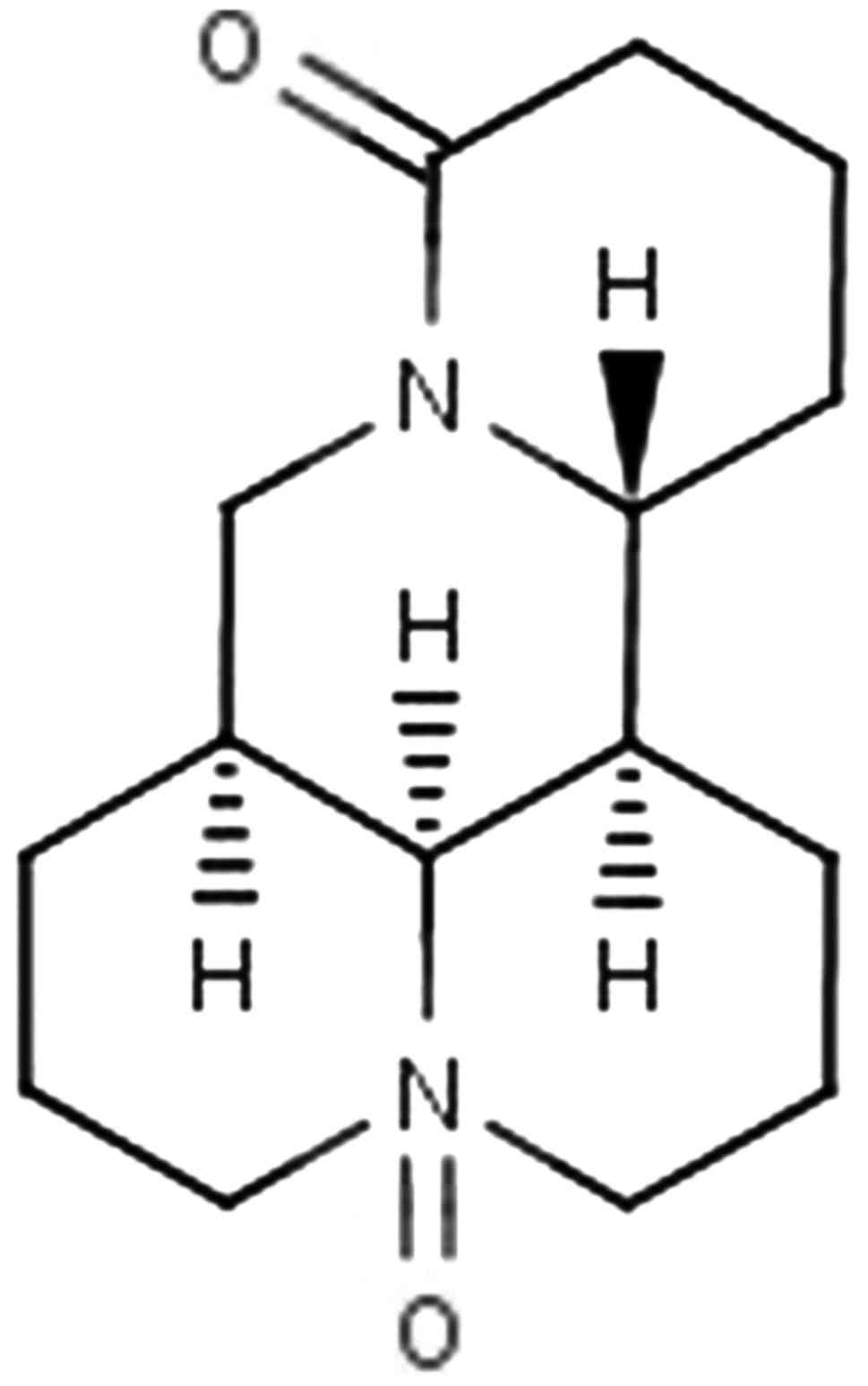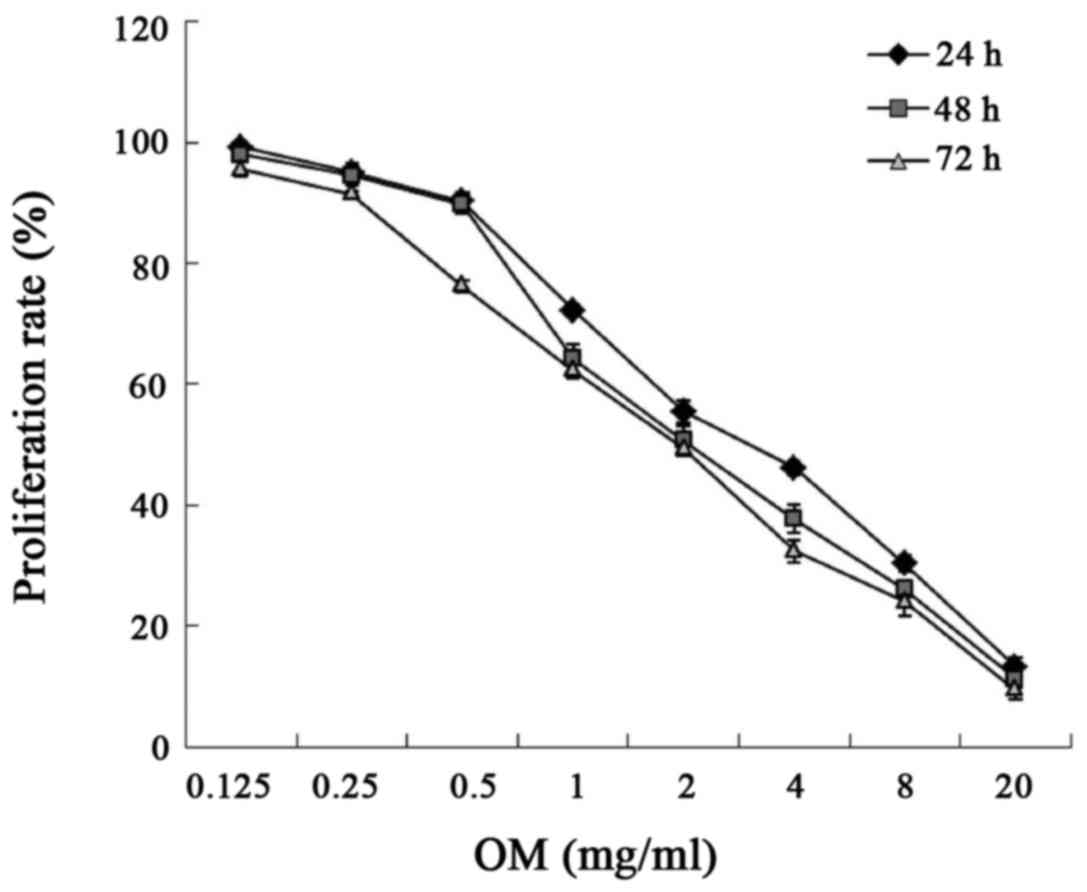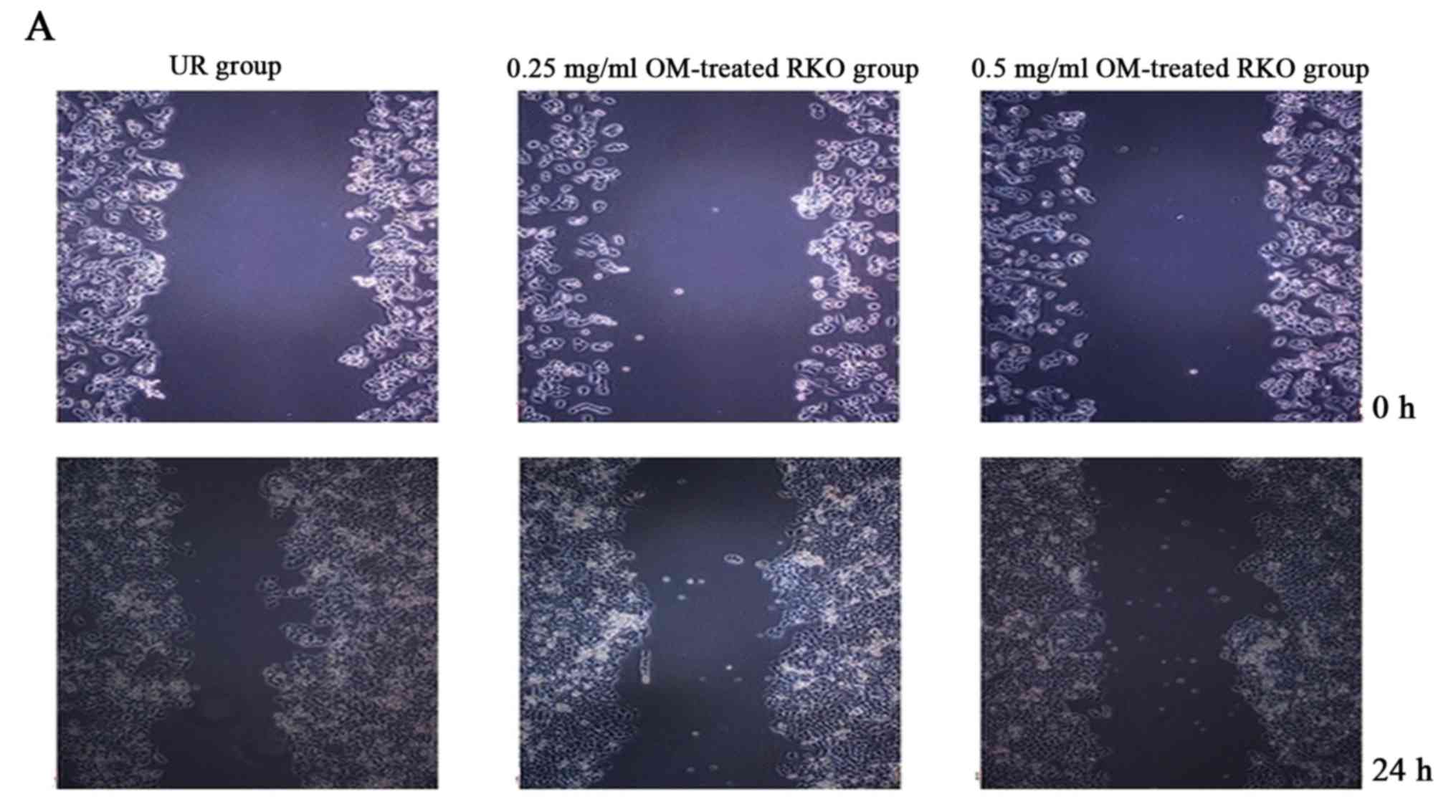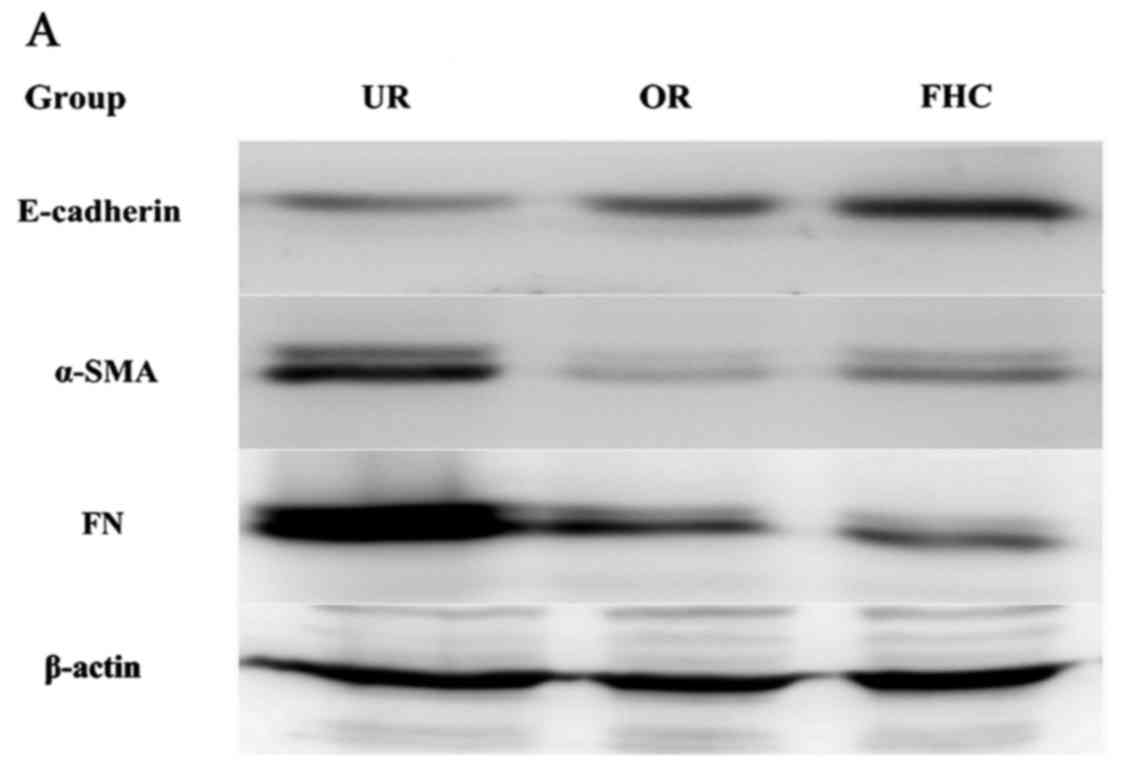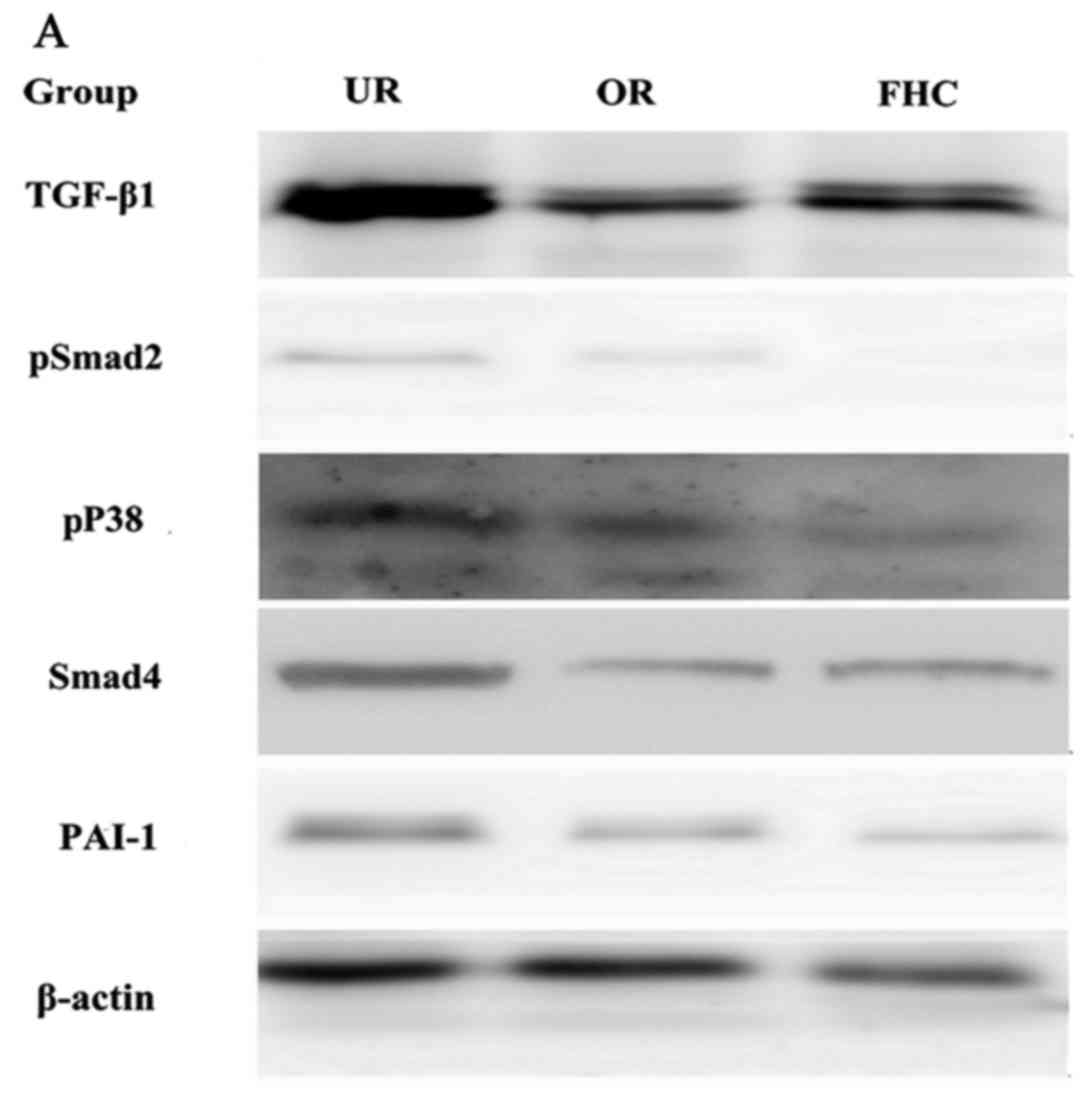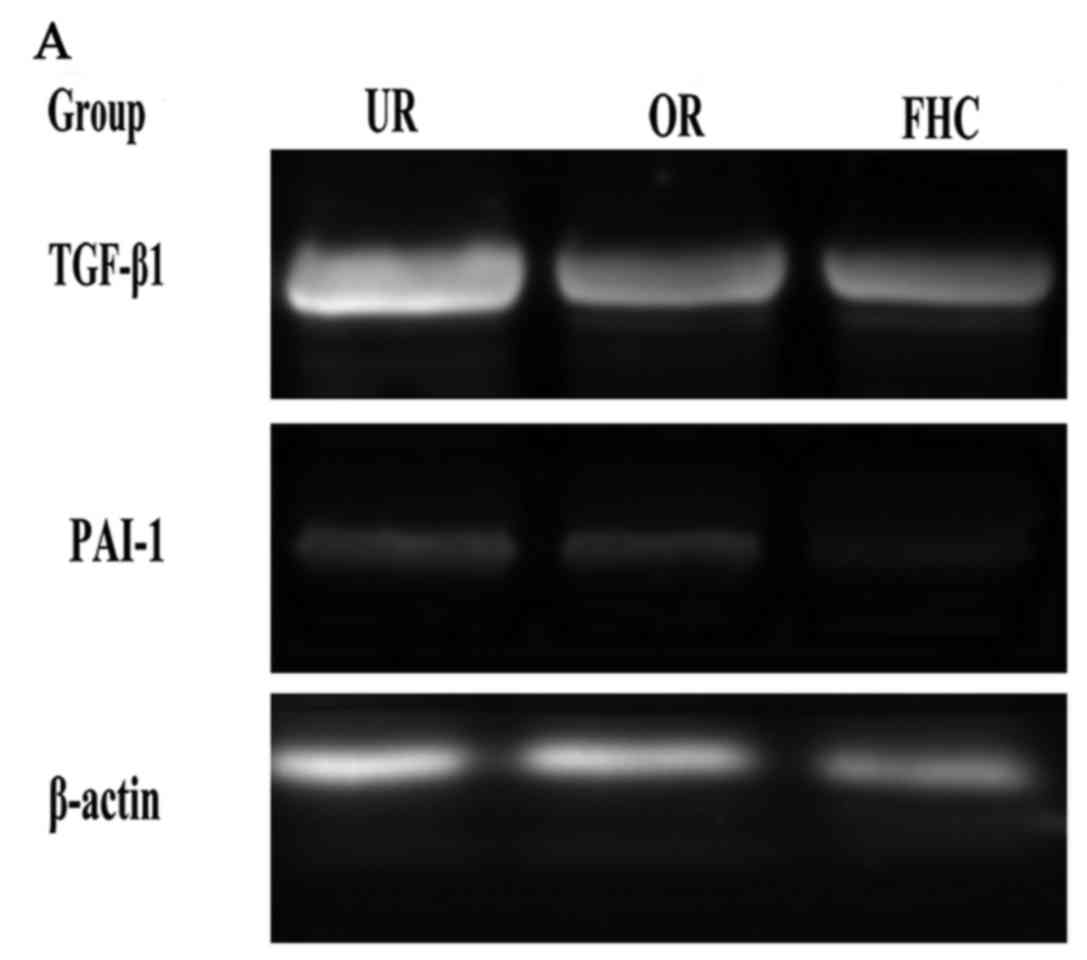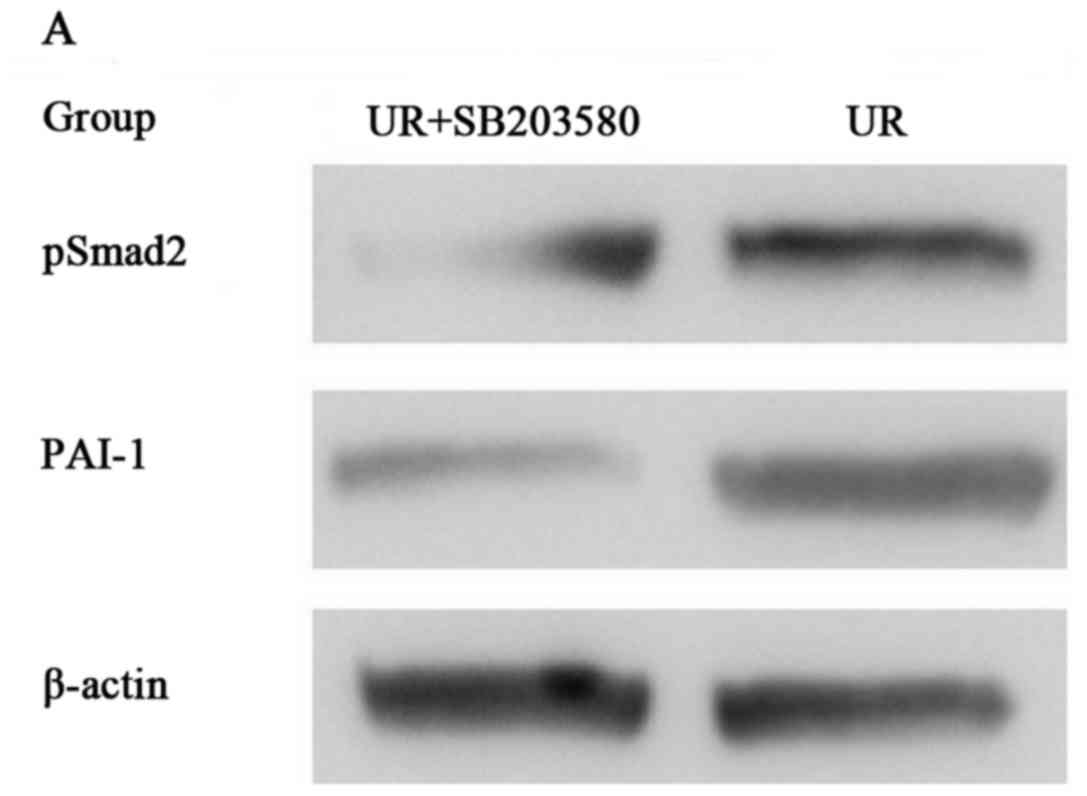|
1
|
Yuan X, Sun Y, Miao N, Sun S, Wang Y, Hu
Z, Yuan J, Xu M and Liu Z: The synergistic anti-inflammatory effect
of the combination of sodium ferulate and oxymatrine and its
modulation on inflammation-associated mediators in RAW 264.7 cells.
J Ethnopharmacol. 137:1477–1485. 2011. View Article : Google Scholar : PubMed/NCBI
|
|
2
|
Chen X, Sun R, Hu J, Mo Z, Yang Z, Liao D
and Zhong N: Attenuation of bleomycin-induced lung fibrosis by
oxymatrine is associated with regulation of fibroblast
proliferation and collagen production in primary culture. Basic
Clin Pharmacol Toxicol. 103:278–286. 2008. View Article : Google Scholar : PubMed/NCBI
|
|
3
|
Fan H, Chen R, Shen L, Lv J, Xiong P, Shou
Z and Zhuang X: Oxymatrine improves TNBS-induced colitis in rats by
inhibiting the expression of NF-kappaB p65. J Huazhong Univ Sci
Technolog Med Sci. 28:415–420. 2008. View Article : Google Scholar : PubMed/NCBI
|
|
4
|
Zhao P, Zhou R, Li HN, Yao WX, Qiao HQ,
Wang SJ, Niu Y, Sun T, Li YX and Yu JQ: Oxymatrine attenuated
hypoxic-ischemic brain damage in neonatal rats via improving
antioxidant enzyme activities and inhibiting cell death. Neurochem
Int. 89:17–27. 2015. View Article : Google Scholar : PubMed/NCBI
|
|
5
|
Guzman JR, Koo JS, Goldsmith JR, Mühlbauer
M, Narula A and Jobin C: Oxymatrine prevents NF-κB nuclear
translocation and ameliorates acute intestinal inflammation. Sci
Rep. 3:16292013. View Article : Google Scholar : PubMed/NCBI
|
|
6
|
Guo C, Han F, Zhang C, Xiao W and Yang Z:
Protective effects of oxymatrine on experimental diabetic
nephropathy. Planta Med. 80:269–276. 2014. View Article : Google Scholar : PubMed/NCBI
|
|
7
|
Li J, Jiang K and Zhao F: Oxymatrine
suppresses proliferation and facilitates apoptosis of human ovarian
cancer cells through upregulating microRNA-29b and downregulating
matrix metalloproteinase-2 expression. Mol Med Rep. 12:5369–5374.
2015.PubMed/NCBI
|
|
8
|
Fei ZW, Qiu MK, Qi XQ, Dai YX, Wang SQ,
Quan ZW, Liu YB and Ou JM: Oxymatrine suppresses proliferation and
induces apoptosis of hemangioma cells through inhibition of HIF-1a
signaling. Int J Immunopathol Pharmacol. 28:201–208. 2015.
View Article : Google Scholar : PubMed/NCBI
|
|
9
|
Moorthy NS Narayana, Ramos MJ and
Fernandes PA: Human ether-a-go-go-related gene channel blockers and
its structural analysis for drug design. Curr Drug Targets.
14:102–113. 2013. View Article : Google Scholar : PubMed/NCBI
|
|
10
|
Wang X, Wang J, Wang Z, Wang Q and Li H:
Dynamic monitoring of plasma amino acids and carnitine during
chemotherapy of patients with alimentary canal malignancies and its
clinical value. Onco Targets Ther. 8:1989–1996. 2015. View Article : Google Scholar : PubMed/NCBI
|
|
11
|
Tomida C, Aibara K, Yamagishi N, Yano C,
Nagano H, Abe T, Ohno A, Hirasaka K, Nikawa T and Teshima-Kondo S:
The malignant progression effects of regorafenib in human colon
cancer cells. J Med Invest. 62:195–198. 2015. View Article : Google Scholar : PubMed/NCBI
|
|
12
|
Ma X, Yan W, Dai Z, Gao X, Ma Y, Xu Q,
Jiang J and Zhang S: Baicalein suppresses metastasis of breast
cancer cells by inhibiting EMT via downregulation of SATB1 and
Wnt/β-catenin pathway. Drug Des Devel Ther. 10:1419–1441. 2016.
View Article : Google Scholar : PubMed/NCBI
|
|
13
|
Wind T, Jensen JK, Dupont DM, Kulig P and
Andreasen PA: Mutational analysis of plasminogen activator
inhibitor-1. Eur J Biochem. 270:1680–1688. 2003. View Article : Google Scholar : PubMed/NCBI
|
|
14
|
Tong Q, Weaver MR, Kosmacek EA, O'Connor
BP, Harmacek L, Venkataraman S and Oberley-Deegan RE: MnTE-2-PyP
reduces prostate cancer growth and metastasis by suppressing p300
activity and p300/HIF-1/CREB binding to the promoter region of the
PAI-1 gene. Free Radic Biol Med. 94:185–194. 2016. View Article : Google Scholar : PubMed/NCBI
|
|
15
|
Lampelj M, Arko D, Cas-Sikosek N, Kavalar
R, Ravnik M, Jezersek-Novakovic B, Dobnik S, Dovnik NF and Takac I:
Urokinase plasminogen activator (uPA) and plasminogen activator
inhibitor type-1 (PAI-1) in breast cancer - correlation with
traditional prognostic factors. Radiol Oncol. 49:357–364. 2015.
View Article : Google Scholar : PubMed/NCBI
|
|
16
|
Deepak V, Ramachandran S, Balahmar RM,
Pandian SR, Sivasubramaniam SD, Nellaiah H and Sundar K: In vitro
evaluation of anticancer properties of exopolysaccharides from
Lactobacillus acidophilus in colon cancer cell lines. In Vitro Cell
Dev Biol Anim. 52:163–173. 2016. View Article : Google Scholar : PubMed/NCBI
|
|
17
|
Langenskiöld M, Holmdahl L, Angenete E,
Falk P, Nordgren S and Ivarsson ML: Differential prognostic impact
of uPA and PAI-1 in colon and rectal cancer. Tumour Biol.
30:210–220. 2009. View Article : Google Scholar : PubMed/NCBI
|
|
18
|
Zong W, Yu C, Wang P and Dong L:
Overexpression of SASH1 inhibits TGF-β1-induced EMT in gastric
cancer cells. Oncol Res. 24:17–23. 2016. View Article : Google Scholar : PubMed/NCBI
|
|
19
|
Vayalil PK, Iles KE, Choi J, Yi AK,
Postlethwait EM and Liu RM: Glutathione suppresses TGF-beta-induced
PAI-1 expression by inhibiting p38 and JNK MAPK and the binding of
AP-1, SP-1, and Smad to the PAI-1 promoter. Am J Physiol Lung Cell
Mol Physiol. 293:L1281–L1292. 2007. View Article : Google Scholar : PubMed/NCBI
|
|
20
|
Goto N, Hiyoshi H, Ito I, Iida K, Nakajima
Y, Nagasawa K and Yanagisawa J: Identification of a novel compound
that suppresses breast cancer invasiveness by inhibiting
transforming growth factor-β signaling via estrogen receptor α. J
Cancer. 5:336–343. 2014. View
Article : Google Scholar : PubMed/NCBI
|
|
21
|
Argentou N, Germanidis G, Hytiroglou P,
Apostolou E, Vassiliadis T, Patsiaoura K, Sideras P, Germenis AE
and Speletas M: TGF-β signaling is activated in patients with
chronic HBV infection and repressed by SMAD7 overexpression after
successful antiviral treatment. Inflamm Res. 65:355–365. 2016.
View Article : Google Scholar : PubMed/NCBI
|
|
22
|
Jiang Y, Wu C, Boye A, Wu J, Wang J, Yang
X and Yang Y: MAPK inhibitors modulate Smad2/3/4 complex
cyto-nuclear translocation in myofibroblasts via Imp7/8 mediation.
Mol Cell Biochem. 406:255–262. 2015. View Article : Google Scholar : PubMed/NCBI
|
|
23
|
Liu L, Wang Y, Yan R, Li S, Shi M, Xiao Y
and Guo B: Oxymatrine inhibits renal tubular EMT induced by high
glucose via upregulation of SnoN and inhibition of TGF-β1/Smad
signaling pathway. PLoS One. 11:e01519862016. View Article : Google Scholar : PubMed/NCBI
|















